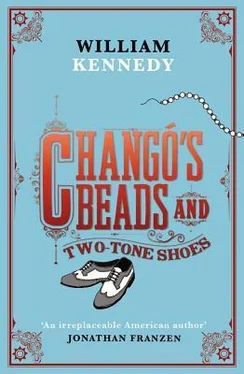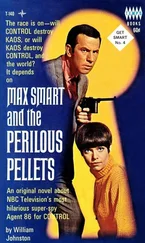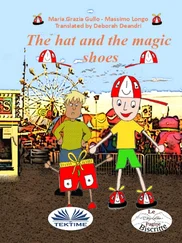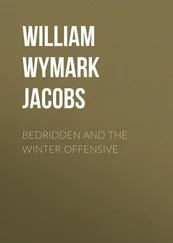The marriage secret was short-lived, and when it became gossip in Santiago the word flew to Spain and into the ear of the estate’s executor, who cut off Margarita’s inheritance and the child Celia’s as well. The catastrophe was compounded within weeks when Evelio, discovering that his wealthy new wife was penniless, left her and moved into a small house with a former housemaid from his father’s estate. The executor wrote Margarita that under the terms of Jaime’s will he could give her such support for residency as she might find in a convent, and if such a convent existed in Cuba, she would be free to seek it out. If not then she could return to Madrid and find residence in any of several convents. The child, in any case, will be cared for by the Holtz family in Santiago.

Getting married in order to see Fidel — this may be Quinn’s ultimate sacrifice. Fidel. What would Quinn ask him? Herbert Matthews had confirmed his survival, described him as a demigod, as an intellectual, nationalistic, anti-Yankee, anti-imperialistic, anti-communist revolutionary, a dedicated fanatic, a man of ideals, a tough, charismatic hero fighting for a socialistic, democratic Cuba, who has polarized the majority of Cuban youth against Batista and seems invincible.
Can’t top that.
So talk to him about the how of what he did — how he made the La Plata attack and what it achieved. Or a longshot — the link between politics and gangsterism. Wasn’t he a gangster in his university days? That’s a new take on the revolutionary. And Arsenio, the rural gangster, collaborating with the connected Alfie to bring you these guns. Isn’t gangsterism just low-level political pragmatism? Machado with his gangster police — the deadly Porra; Prío as president giving jobs to two thousand gangsters to curb crime; Batista making the Italian mob his partners — likewise partnering with goons, the homegrown Tigers of Rolando Masferrer, your University classmate and now your enemy, Señor Castro — gangster then, gangster now. It’s all very tidy and of the moment, yes, and Fidel might be amused. But why would he talk about any of that? What would Hemingway ask him? Nothing about gangsters. He’d talk about Fidel’s gun. He’d ask about logistics, methods, attitudes, what he thinks about war, what was your first revolutionary act and did anybody die from it? Hemingway wouldn’t talk politics. He’d say if you put politics into the novel, and if the book lasts twenty years, you have to skip the politics when you read it.
Ah, so you are writing a novel about me, Mr. Quinn?
No, just tracking the hero the way my grandfather tracked Céspedes, and you qualify as heroic merely on the basis of your survival. How do you explain not dying in combat at the Moncada barracks? Or when they captured you there? Or when they had you in Batista’s jail? Or when as an invader you shipwrecked in a swamp? Or now, when you’re dodging aerial bombardment and being hunted by half the Cuban army? All this smacks of a scripted life for Fidel Castro — Achilles without the flawed heel.
Renata will love this idea: a new Orisha in control of the mountains, fated to defy death from every angle, too original to die. Originality is an ingenious form of defiance, don’t you think? Or do you have a simpler vision and consider yourself lucky? Was Céspedes lucky? He said his children were beggars, or on the cusp of prostitution. The Spaniards executed his rebel son by firing squad the same year his infant son starved to death among the fugitive Mambí. They got to the man himself in ’74 when his originality failed and he feared he was being eclipsed by his general, Máximo Gómez, and was deposed from the presidency in a leadership coup. He ran out of luck, or was it intuition, and he retreated alone to the mountains where the Spaniards caught up with him, and a Cuban volunteer with the Spaniards pulled the trigger.
But he is still the father of Cuba, El Padre de la Patria, is he not? Was he a chosen figure or did he imagine himself into existence? My grandfather came to Cuba on a bizarre and solitary quest to interview him for a New York newspaper and confirm he was alive — and he later wrote a book about it— Going to See the Hero, have you read it? I’ll send you a copy.

El Quin and the ex-slave, his name was Nicodemo, were moving toward a mountain they could not avoid climbing without exposure to a Spanish fort below. The horse would probably not make it but Nicodemo said they could try and he led the horse upward as they chopped brush to clear their way. Fifty yards up the horse fell twenty feet, rolling, snapping trees, ripping off its harness, rising up, falling and rolling again, you don’t see that every day, scattering El Quin’s belongings and his second pistol and ammunition. The horse righted itself, pushed downhill through the trees and ran onto the guinea-grass plain, gone forever, so long horse.
Nicodemo retrieved pistol and ammo and they rolled up the strewn clothing and carried it on their backs — slipping, falling, slashed by briars, crawling over boulders on all fours — emerging onto a mesa that was a relief from incline but opened them to the punishment of a scorching Cuban sun that could quickly crisp El Quin. He rolled down his shirtsleeves and put on his straw hat and they walked two more hours before seeing Mambí troops. The troops had halted next to a great brick tower, taller than any building Quinn had seen in Cuba outside of Havana and whose function he could not imagine; but he would learn that the tower was all that remained of a sugar mill burned by the rebels. It was topped off by the slaveholder’s crow’s nest where, from daybreak to nightfall, a lookout had watched 360 degrees of fields for trails being made in the high grass by runaway slaves who sometimes chanced death rather than live another day creating sugar for the Spanish swine.
Quinn and Nicodemo walked into the midst of twenty Mambí cavalry soldiers, horses tethered in a grove of trees. An officer with a full beard, wearing a hat, an open, high-collared linen jacket, leggings, and a pistol with belt and bandolier, greeted them.
“Capitán Díaz Rodón,” he said, “I welcome you to Cuba Libre.”
He released Nicodemo from duty and Quinn offered the ex-slave his gratitude, which he acknowledged with a brief nod. The Capitán said Quinn should rest, take water, eat something; my troops will protect you while we are in this territory where Spaniards have been seen. He would send a message to President Céspedes to say Quinn had arrived. Did the Capitán know a Lieutenant Castellón? He did. He is an aide to the president. Quinn had a message for him from his wife in New York who has raised much money for the Mambí cause. Capitán Díaz said they would not go directly to the presidential camp, near Contramestre, but would jog west to cut Spanish telegraph wires between Palma Soriano and Jiguaní. Later they would meet General Máximo Gómez’s battalion and move toward a town with entrenched Spanish troops and try to lure them out from their barricades. President Céspedes thought it might be bracing for Señor Quinn, and good for what he was writing, to see our troops in combat. You can watch from well behind the lines and be safe, if you keep your head down, but not too far down or you will miss the battle.

Natalia found her brother in the library with Quinn and Alfie, who had retreated there hours earlier to wait for Holtz to return. Alfie had been perusing topographical maps of Oriente Province, educating himself on the land, a modest preparation for flying guns into this territory, when Natalia said to her brother, you have a visitor in the casa del ingenio . And Holtz led the visiting pilgrims to the sugar mill where Arsenio Zamora, the charismatic bandit, was standing alone by the great gear of a grinder, a picture of anxiety in process, violating Fidel’s first commandment that thou shalt not stay anywhere that can be surrounded. But the public enemy was here on a mission Fidel had sanctioned. And he stared at Holtz and his entourage of three as they entered the mill.
Читать дальше















